
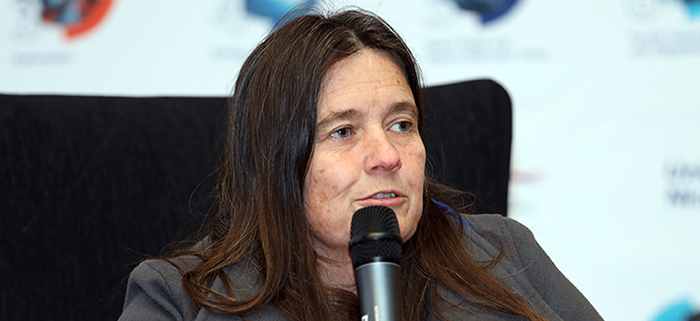
Prof Catherine Cress, College of Science, Engineering and Technology
On 30 July 2025, astronomy experts convened at Unisa during the Catalytic Niche Area Research Symposium to deliberate on Catalytic Niche Area 5: Space studies and the Square Kilometre Array. The discussion was themed Space studies and the Square Kilometre Array; Down-to-earth approaches.
In her opening remarks, Eleanor Muller, Marketing Executive at Transfrontier Parks Destinations, said that the unique opportunity to work in the tourism industry exposed her to the remotest parts of Southern Africa in community-based tourism, leading her to the discovery of a unique view of the sky at the !Ae!Hai Kalahari Heritage Park. She further explained: "We were introduced to the dark sky concept. The area was later designated as an International Dark Sky Sanctuary. It offers an extraordinarily clear view of the Milky Way galaxy and other stars."
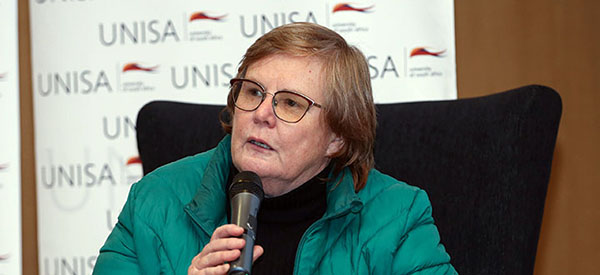
Eleanor Muller, Marketing Executive: Transfrontier Parks Destinations
Expanding further, Muller explained that International Dark Sky Sanctuary areas are identified by astronomers who are concerned about the impact of artificial lights at night on land-based astronomy.
Concluding, Muller remarked that currently, the area is considered Africa’s only International Dark Sky Sanctuary. "However," she added, "many dark sky spots in Africa are yet to be identified and marked as such. Therefore, in addition to the opportunity for astronomy researchers, the platform can educate new generations about the importance of dark skies, participation in citizen science, hobbyist astronomy observation, data collection, and so many more wonders of the universe."
Pamela Nombula, a Data Scientist at Sasol, said that South Africa is at the cusp of cutting-edge technology in astrophysics, and that with this technology, "we should be able to go back in time and study the origin of the universe. We should make this knowledge relatable and cascade it to primary and secondary schools".

Pamela Nombula, Data Scientist, Sasol
Speaking next, Dr Eliab Malefahlo, a postdoctoral researcher at Unisa, said that the completion of the international Square Kilometre Array (SKA) project will bring many exciting opportunities, among them studying how the universe began, studying the formation of galaxies and their evolution through time, and studying black holes which are at the centre of most galaxies, including the one at the centre of our galaxy, Sagittarius A*.
Continuing, Malefahlo mentioned that completing the SKA project will also aid in detecting signs of intelligent life forms from planets light-years away from Earth. He added: "The detection of radio signals will be one of the pieces of evidence telling us that signs of life may exist beyond our planet, as will a thorough study of exoplanets which exhibit similar environmental conditions to those found on our planet."

Eliab Malefahlo, postdoctoral researcher: Unisa
Malefahlo said that dark energy, a force in the universe that is not truly understood and that appears to accelerate the expansion of the universe, will be one of the phenomena to be studied, as will dark matter. "Dark matter remains a mystery to us, yet its presence is described through its gravitational effect," he said. "We can only observe 5% of the components of the universe with the current telescopes, including stars, planets and galaxies; therefore, this leaves a vacuum for other components of the universe to be studied," he expanded.
Dr Adrian Tiplady, Deputy Managing Director of the South African Radio Astronomy Observatory, said that the SKA project is set to be the world's largest radio telescope, and South Africa is a joint partner in its construction. "South Africa has areas and scientific qualities that support the next generation of the SKA project in both radio and optical astronomy," he said.
"The SKA, set to be the MeerKAT telescope’s precursor, and a game-changer in astronomy studies and observation, is set to attract international investment and interest from the scientific community," Tiplady explained.
Concluding the session on a high note, Prof Catherine Cress from Unisa’s College of Science, Engineering and Technology revealed the announcement during the symposium by Unisa’s Principal and Vice-Chancellor, Prof Puleng LenkaBula, that the United States’ National Aeronautics and Space Administration (NASA) is interested in Unisa’s commitment to the expansion of space studies, adding: "This is great news for us especially since we have specialists and scientists within the university and the country whose knowledge, skill-sets and enthusiasm are on par with those of NASA scientists".
* By Godfrey Madibane, Acting Journalist, Department of Institutional Advancement
** Photography by Mduduzi Khathamzi, Multimedia Centre
Publish date: 2025-08-12 00:00:00.0
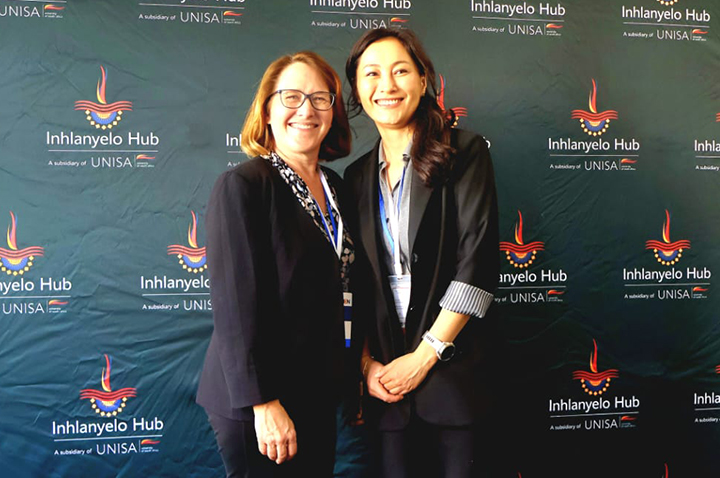 Unisa roundtable focuses on empowering SA women to lead in innovation
Unisa roundtable focuses on empowering SA women to lead in innovation
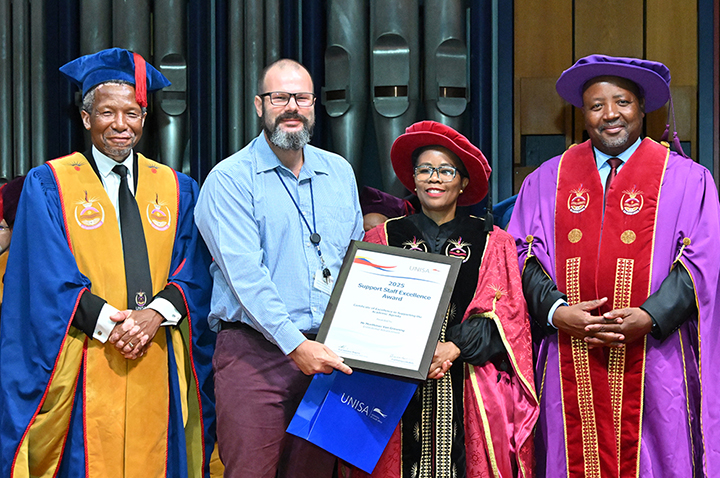 Unisan recognised for web excellence
Unisan recognised for web excellence
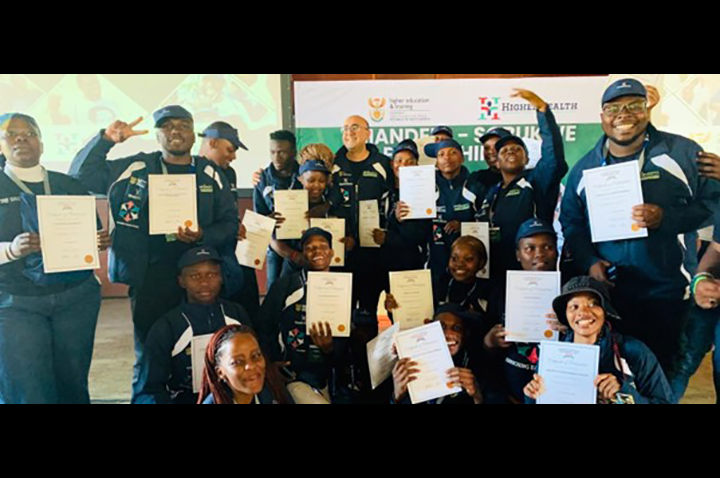 Office of the Dean of Students participates in leadership camp
Office of the Dean of Students participates in leadership camp
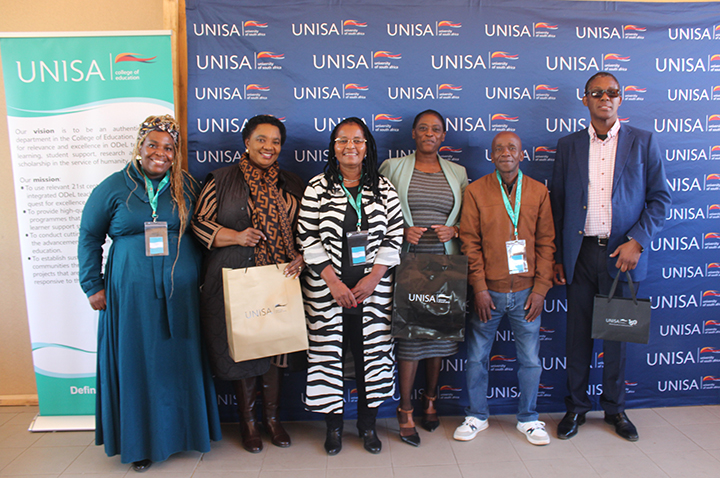 Unisa project fosters digital and pedagogical innovation in Limpopo schools
Unisa project fosters digital and pedagogical innovation in Limpopo schools
 Unisa student wins prestigious national leadership award
Unisa student wins prestigious national leadership award